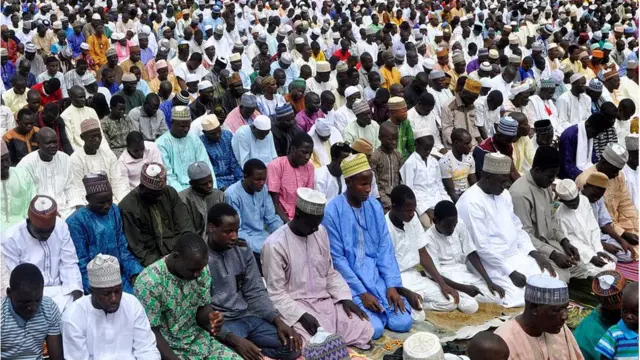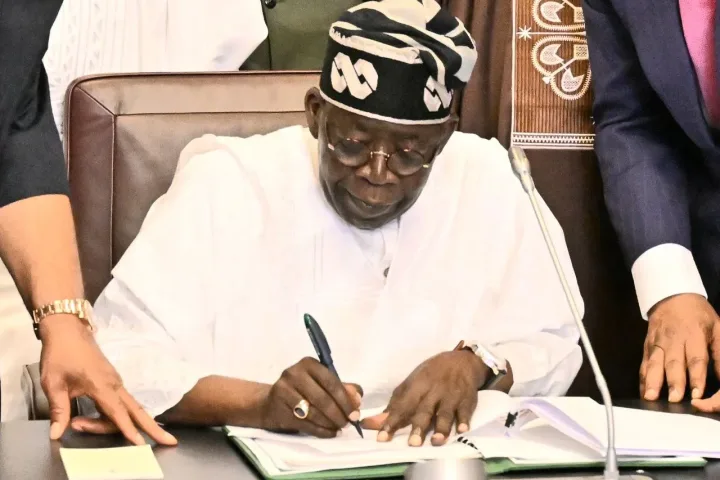Nigeria’s Southeast now faces economic and social implications of rising insecurity under the weight of kidnapping, herdsmen attacks, and attacks by unknown gunmen, just as the Northeast grapples with security challenges caused by the Boko Haram insurgency.
This insecurity is compounded by pro-Biafra agitators that sometimes allegedly confront security operatives that they seemingly perceive to be disrupting their separatist activities.
Join our WhatsApp ChannelThe recent spate of attacks, killings, kidnapping and destruction of public institutions/properties in the states of Imo, Anambra, Abia, Enugu and Ebonyi, credited to a group of unidentified gunmen is no doubt gradually eroding the relative peace enjoyed in the region.
These security challenges have also disrupted economic and social activities and led to the loss of lives and revenue by both citizens and state governments in the region.
During the Biafra Remembrance Day observed on May 30th and 31st in the five South-East states, the Nnamdi Kanu-led Indigenous People of Biafra (IPOB) group agitating for the State of Biafra to be carved out of the old Eastern region, issued a sit-at-home order.
Previously held on May 30th to commemorate the declaration of Biafra by the late Dim Chukwuemeka Odumegwu Ojukwu, and also in remembrance of the death of over one million people in the Nigeria/Biafra civil war, the event took an unprecedented dimension this year.
Unlike the normal street parades that would attract the attention of security forces, for the two days, IPOB ordered a total shutdown of economic and social activities. The roads in some of the states were deserted. Government institutions, banks, schools, corporate businesses, markets and shops were shut, as people stayed at home for fear of attack.
Residents in Enugu who spoke with Prime Business said that their reason for observing the order was because they feared being attacked by hoodlums looking to take advantage of the situation in the absence of security operatives. Their fears were valid. The commemoration did not end without human causalities. Scores of people were reportedly attacked and killed during the lockdown in various parts of the region.
In Enugu for instance, about four persons were reportedly killed by unknown gunmen in separate attacks in different parts of the city. Three of the dead were police officers, while one was a retired Chief Judge of Enugu State High Court, Justice Stanley Nnaji. In Ebonyi, about five residents were reported to have lost their lives during the lockdown.
Combined with previous attacks, especially in Imo State, the attacks from the sit-at-home order have created a palpable sense of terror in the people of the region. The fear is heightened by the fact that security facilities in parts of the region remain under attack from hoodlums, with arms being carting away for use in subsequent operations.
In Imo state there are reports of about four police divisional headquarters razed by hoodlums in less than a week, along with the Shell Oil facility at Obiakpu-Egbema in Ohaji/Egbema Local Government Area of the State which was also set ablaze by suspected hoodlums.
These developments have grave economic and social implications on the Southeast. A development economist, Dr. Aduku Ebikabowei, said this can lead to the loss of jobs and revenue.
“Most firms in the region will see the insecurity issue as a threat to their business and may want to relocate or reduce the size of their business operations in the area”, Ebikabowei said.
He said such disturbances can equally discourage Foreign Direct Investment (FDI) in the region and entire nation. According to him, this can affect national Gross Domestic Product (GDP), an indicator of national economic growth.
On the social implication, Ebikabowei noted that the crisis can as well affect educational activities. “Where there are crises, definitely it will affect academics, skills development, and also affect health activities. These will in turn affect human capital development. Once human capital is affected, productivity will likely be affected”, Ebikabowei stated.
Analysts say the rising insecurity in Nigeria’s Southeast is part of the factors encouraging the separatist movement not just in the region, but in other parts of the country. They blame the attacks on IPOB/ESN and allege that the attacks are carried out by mercenaries deployed by some politicians to destabilize the region and tag it insecure.
This precarious situation calls for an honest commitment by both security agencies and political leaders to address the situation and save the Nigeria’as Southeast region from imminent doom.
To combat crime and insecurity in the South-East, governors of Nigeria’s Southeast five states of Abia, Imo, Enugu, Ebonyi and Anambra had jointly launched a regional security outfit called Ebube Agu in April; an imitation of the Amotekun in the South-West.
During the launch of the outfit, governors in Nigeria’s Southeast condemned cases of burning down police stations and other government institutions as well as killings in the region. They promised to do all within their power to support the security agencies in containing the crises.
According to a security expert and retired Superintendent of Police, Ferdinand Osita, there is a need for security agencies to carry out proper investigation and intelligence gathering to be able to fish out the real perpetrators of the attacks in the region, arrest and prosecute them.
Osita noted that the case of indiscriminate arrests of youths and tagging them as IPOB and ESN members without proper investigation as witnessed in some parts of the region is not the best approach to handle the crises but would rather aggravate the situation.
The various state governments in Nigeria’s Southeast region need to show full commitment to address the core issues causing insecurity in the South-East. They should look into fundamental issues fuelling agitations by the pro-Biafra IPOB, rather than resorting to using security operatives to crack down on agitators, especially during peaceful demonstrations.
Victor Ezeja is a passionate journalist with seven years of experience writing on economy, politics and energy. He holds a Master's degree in Mass Communication.



















Follow Us